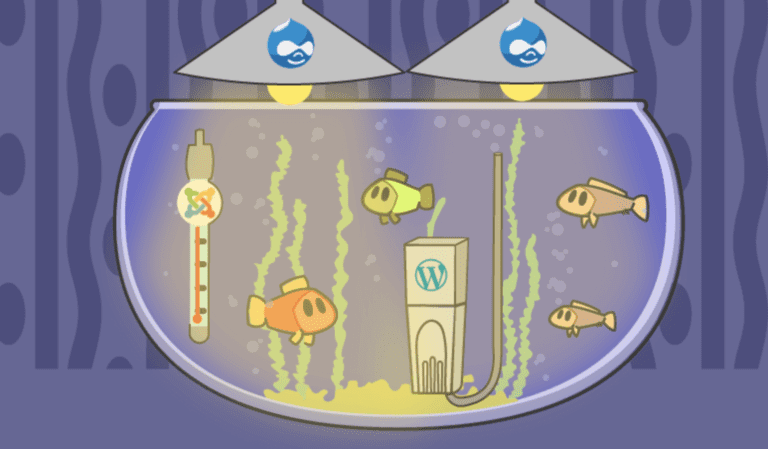With the increasing popularity of WordPress as a website platform, choosing the right web hosting provider is crucial for the success of your website. There are several key factors to consider when selecting WordPress web hosting that can greatly impact the performance and reliability of your website. By examining these factors, you can make an informed decision and ensure a seamless hosting experience.
1. Performance and Speed:
– Key performance indicators include website loading times, server response times, and overall website performance.
– Hosting providers should utilize technologies such as caching, content delivery networks (CDNs), and optimized server configurations to ensure fast loading times.
2. Reliability and Uptime:
– Uptime refers to the percentage of time the hosting server is operational and your website is accessible.
– A high uptime is crucial to ensure your website is always available to visitors.
– Hosting providers should have robust infrastructure, redundant systems, and backup solutions to guarantee high uptime.
3. Security:
– Hosting providers should have robust security measures in place, including firewalls, malware scanning, and SSL certificates.
– Regular backups and updates should be performed to ensure the security and integrity of your website.
4. Scalability and Resources:
– A WordPress website requires sufficient resources, such as disk space, bandwidth, and memory, to run smoothly.
– The hosting plan should offer scalability, allowing you to easily upgrade resources as your website grows.
5. Support:
– The hosting provider should offer reliable customer support with multiple support channels, such as live chat, email, and phone.
– Support should be responsive and knowledgeable in WordPress-related issues.
6. Pricing and Plans:
– Consider the pricing structure of the hosting plans and whether they align with your budget and requirements.
– Be aware of any additional costs or limitations associated with the hosting plans.
7. WordPress Specific Features:
– Look for hosting providers that offer specialized features and optimizations specifically tailored for WordPress websites.
– These features can enhance the performance, security, and management of your WordPress site.
8. User Reviews and Reputation:
– Read user reviews and testimonials to gauge the experiences of other customers.
– Research the hosting company’s overall reputation and track record in the industry.
By carefully considering these key factors, you can select the best WordPress web hosting provider that meets your needs and ensures the smooth operation of your website.
Key takeaway:
- Performance and Speed: When choosing WordPress web hosting, it is important to consider the performance and speed of the hosting provider. A fast and reliable hosting service can greatly enhance the user experience and improve website loading times.
- Reliability and Uptime: Another crucial factor to consider is the reliability and uptime of the hosting provider. A reliable hosting service ensures that your website is accessible to users at all times, minimizing downtime and potential loss of business.
- Security: Ensuring the security of your WordPress website is essential. Look for a hosting provider that offers robust security measures such as firewalls, malware scanning, and regular backups to protect your website from cyber threats.
Factors to Consider When Choosing WordPress Web Hosting
Considering the numerous options available, choosing the right WordPress web hosting is crucial for the success of your website. In this section, we’ll explore the key factors that should be taken into account when making this decision. From performance and speed to security and scalability, we’ll uncover what each sub-section brings to the table. Are you ready to discover the perfect WordPress web hosting solution? Let’s dive in!
1. Performance and Speed
When considering WordPress web hosting, performance and speed are critical factors to take into account for the success of your website.
- Key performance indicators: Evaluating key performance indicators such as website loading time, server response time, and page speed can determine the effectiveness of your hosting provider. Look for a hosting company that offers fast loading times and optimal website performance.
- Fast loading times: A hosting provider ensures fast loading times through various methods, such as utilizing efficient server infrastructure, optimized configurations, and content delivery networks (CDNs). These technologies help reduce latency and enhance the loading speed of your website.
- Reliable server infrastructure: Choose a hosting provider that prioritizes reliable server infrastructure, ensuring minimal downtime and uninterrupted website accessibility for your visitors. High uptime rates are essential to prevent the loss of traffic and potential customers.
- Website speed: The speed of your website plays a crucial role in delivering a positive user experience. Select a hosting provider that offers excellent timely support to maintain fast website speed and optimize website performance.
Taking these factors into consideration will assist you in making an informed decision and selecting a WordPress web hosting provider that best suits your website’s performance and speed requirements.
2. Reliability and Uptime
When considering the reliability and uptime of a WordPress web hosting provider, there are several key factors to take into account:
- Uptime rates: It is important to consider the uptime rates offered by the hosting provider. Look for providers that guarantee a high uptime percentage, such as 99% or higher.
- Server infrastructure: A reliable server infrastructure is crucial for ensuring minimal downtime. Make sure the hosting provider has robust and redundant server systems in place, including backup power sources and data centers in different locations.
- Security measures: The hosting provider should have contemporary cybersecurity measures in place to protect your WordPress site from security breaches. This includes threat monitoring, DDoS protection, and server-level protections.
- Customer support: Timely and efficient customer support is essential for resolving any issues that may arise. Look for hosting providers that offer top-notch support with fast ticket response times and knowledgeable sales and support teams.
- Backup solutions: Regular backups are crucial for protecting your WordPress site. Ensure that the hosting provider offers automated backup solutions, ideally with daily backups, to minimize the risk of data loss.
- User experience: Hosting companies with a reputation for providing a reliable and stable hosting environment contribute to a positive user experience for visitors to your website. A poor hosting experience can lead to lost traffic and damage to your brand’s reputation.
- Scalability: Consider whether the hosting plan is flexible and can accommodate your website’s growth cycle. It is essential to choose a hosting provider that offers plans with the right resources and the ability to upgrade easily as your website grows.
- Compatibility: Ensure that the hosting provider has specific mention of WordPress in their offerings and provides WordPress-specific optimizations or tools. WordPress-specific troubleshooting and ongoing customer support can greatly enhance your experience.
By considering these essential factors, you can make an informed decision and choose a WordPress web hosting provider that best fits your needs and ensures the reliability and uptime of your website.
3. Security
When considering WordPress web hosting, security is a critical factor that should not be overlooked. Here are some key security measures that a hosting provider should have in place:
-
Web Application Firewall (WAF): A WAF helps protect your website from malicious attacks by monitoring and filtering incoming web traffic. It detects and blocks potential threats before they reach your website.
-
Threat Monitoring: The hosting provider should have systems in place to monitor your website for any suspicious activities or vulnerabilities. Regular scans and audits can help identify and address security risks.
-
SSL Certificates: An SSL certificate encrypts the data exchanged between your website and visitors, ensuring secure communication. It is essential for protecting sensitive information, such as usernames and passwords.
-
Secure Server Infrastructure: The hosting provider should have robust security measures in place to protect their servers from unauthorized access. This can include firewalls, intrusion detection systems, and regular security updates.
-
Two-Factor Authorization: Implementing two-factor authentication adds an extra layer of security to your website. It requires users to provide additional verification, such as a code sent to their mobile device, in addition to their password.
-
Regular Backups: Backing up your website regularly is crucial in case of any security breaches or data loss. The hosting provider should offer automated backup solutions, allowing you to restore your website quickly and easily.
-
Ongoing Customer Support: Prompt and knowledgeable customer support is essential for addressing any security concerns or issues effectively. Look for a hosting provider that offers top-notch timely support to ensure your website’s security.
Choosing a hosting provider that prioritizes security will minimize the risk of security breaches and protect your website, user data, and online reputation. Remember to thoroughly research hosting companies, read user reviews, and consider their reputation in the industry. By taking these security factors into account, you can make an informed decision and ensure the security and success of your WordPress site.
4. Scalability and Resources
When considering WordPress web hosting, scalability and resources are crucial factors to take into account. It is essential to ensure that your hosting plan can accommodate the growth cycle of your WordPress site and provide the necessary resources for optimal performance.
| Scalability and Resources |
| – Assess the scalability of the hosting plan |
| – Determine if the hosting provider allows easy upgrades as your website grows |
| – Consider the flexibility of the hosting plans to ensure the best fit for your needs |
Scalability and Resources
| – Assess the necessary resources for a WordPress website to run smoothly |
| – Determine if the hosting provider offers sufficient server resources such as CPU, RAM, and storage |
| – Consider the availability of additional resources, such as dedicated IP addresses or SSL certificates |
| – Evaluate the reliability of the server infrastructure to ensure the smooth operation of your website |
Remember, selecting a hosting provider that can handle the scalability and provide the necessary resources is crucial for the success of your WordPress site. It ensures that your website can accommodate increasing traffic, maintain optimal site performance, and avoid potential issues that may arise from resource limitations.
Pro-tip: Don’t overlook the importance of ongoing customer support. Opt for a hosting provider that offers top-notch, timely support. This can save you from potential headaches and downtime, ensuring that any issues that arise are resolved swiftly and efficiently.
5. Support
When choosing WordPress web hosting, support is a crucial factor to consider. The level of customer support provided by the hosting provider can greatly impact your experience and the success of your website.
- Expectations for support quality: It is important to know what level of support you can expect from the hosting provider. Look for a company that offers top-notch timely support, as this can greatly impact your experience and the success of your website.
- Available support channels: Consider the various support channels that are available for you to reach out to the hosting provider. Look for hosting companies that offer multiple channels such as live chat, email, and phone support. This ensures that you can easily get assistance whenever you need it.
- WordPress-specific troubleshooting: As a WordPress user, it is beneficial to choose a hosting provider that has expertise in troubleshooting issues specific to WordPress. This means they have the knowledge and experience to address any challenges that may arise with your WordPress site.
- Ongoing customer support: Ensure that the hosting provider offers ongoing support, not just during the initial setup process. This ensures that you can receive assistance whenever you encounter any problems or have questions about your hosting.
- Response times: Consider the ticket response times provided by the hosting provider. Look for quick response times, as this ensures that you won’t have to wait too long to get a resolution to your issue.
By considering these factors related to support, you can make a more informed decision and choose a WordPress web hosting company that will provide the necessary assistance and support throughout your website’s growth cycle.
6. Pricing and Plans
When choosing WordPress web hosting, pricing and plans are critical factors to consider. It is important to evaluate the pricing structure and any additional costs or limitations associated with the hosting plans offered.
To help you make an informed decision, here is a breakdown of the pricing and plans for WordPress web hosting:
Hosting Provider | Pricing Structure | Additional Costs or Limitations
HostGator | Starting at $2.75 per month | Higher renewal rates and additional fees for certain features
Bluehost | Starting at $3.95 per month | Higher renewal rates and additional fees for backups and security
SiteGround | Starting at $6.99 per month | Higher renewal rates and additional fees for advanced features
DreamHost | Starting at $2.59 per month | Additional fees for domain registration and website migration
It is essential to compare the pricing and plans of different hosting providers to find the best fit for your needs and budget. Consider the features and resources included in each package, such as storage space, bandwidth, and website limits.
Remember to factor in any financial costs associated with the hosting plan. While it may be tempting to choose the cheapest option, it’s crucial to consider the long-term scalability and growth of your website. Upgrading hosting plans can sometimes be complicated and result in lost traffic or additional expenses.
To ensure a smooth and successful hosting experience, prioritize top-notch timely support from the hosting provider. Look for companies that offer flexible plans with a good track record of customer support quality. Reading customer reviews and researching the hosting company’s reputation can provide valuable insights into their support quality.
Pro-Tip: When evaluating pricing and plans, consider your website’s current needs and future growth potential. It’s better to invest in a reliable server infrastructure and scalable hosting plan upfront to avoid potential issues and the need for stressful separations later on.
7. WordPress Specific Features
When considering WordPress web hosting, it is essential to take into account the specific features that a hosting provider offers. These features, known as WordPress-specific features, can have a significant impact on the performance, security, and overall user experience of your WordPress site.
1. WordPress-specific optimizations: Look for a hosting provider that offers specialized features and optimizations designed specifically for WordPress. These optimizations may include caching systems, content delivery networks (CDNs), and database optimizations. By implementing these optimizations, your site’s speed and performance can be greatly enhanced.
2. WordPress-specific troubleshooting and support: It is crucial to ensure that the hosting provider has a dedicated support team that is knowledgeable about WordPress. This ensures that any issues or compatibility problems that are specific to WordPress can be quickly and efficiently resolved.
3. Automatic updates and backups: Check if the hosting provider offers automated backup solutions and regular updates for the WordPress core software and plugins. This is important for ensuring that your site remains protected from security vulnerabilities and potential data loss.
4. Security measures: When choosing a hosting provider, it is vital to look for those that implement contemporary cybersecurity measures. These measures may include threat monitoring, server-level protections, and DDoS protection, all of which help safeguard your site from potential security breaches.
5. User experience enhancements: Consider whether the hosting provider offers features that enhance the user experience of your WordPress site. These features can include one-click installations, staging environments for website development, and user-friendly control panels. Such enhancements can greatly improve the usability and convenience of managing your WordPress site.
6. Scalability options: Evaluate the hosting provider’s ability to scale your website as it grows. Look for flexible plans and resources that can accommodate increased traffic and resource demands. This ensures that your site can handle viral traffic and growth without experiencing downtime or performance issues.
7. SSL certificates: It is crucial to check whether the hosting provider offers SSL certificates for secure browsing. This is particularly important for maintaining the trust of your website visitors and improving your search engine rankings.
Fact: Did you know that WordPress powers over 40% of websites on the internet? Its popularity and versatility make it essential to choose a hosting provider that offers specific features tailored to WordPress sites.
8. User Reviews and Reputation
When considering the User Reviews and Reputation of a WordPress web hosting company, there are several important factors to take into account:
By considering these factors and thoroughly exploring the User Reviews and Reputation of a WordPress web hosting company, you can make an informed decision and find the best fit for your website’s needs.
Frequently Asked Questions
What are the 10 essential factors to consider when choosing WordPress web hosting?
When choosing WordPress web hosting, it is important to consider the following key factors:
- Scalability: Ensure the host can accommodate your site’s growth.
- Security: Look for server-level protections and DDoS protection systems.
- Reliability: Check uptime history and response to outages.
- Site Maintenance: Determine if the host manages updates or if you’re responsible.
- Support: Find out if the host provides timely and top-notch support.
- Time vs. Money: Consider the trade-off between handling maintenance yourself or paying for it.
- Web Technology: Ensure the host offers industry-standard technology and infrastructure.
- Web Security: Look for SSL certificate setup assistance and backup solutions.
- WordPress Specific: Check for WordPress-specific troubleshooting and support services.
- Feedback and Reviews: Research false positive/negative reviews and customer experiences.


